Disclosure: Some of the links in this post are affiliate links. As an Amazon Associate, we earn from qualifying purchases. If you click on the link and purchase the item, we may receive an affiliate commission, at no extra cost to you. Learn more
There’s a reason why the first and second amendments are the most popular amongst Americans. The right to say what you want and bear arms are as U.S.A. as John Wayne, double bacon cheeseburgers and the Fourth of July. But, with the nature of firearms being what they are — loud and deafening — whether you’re putting holes in paper targets at the gun range or out in the wilderness chasing game, it’s important to use the best ear protection for shooting so that one doesn’t affect the other.
One shot alone, under the right conditions, can cause severe hearing loss, leaving hunters and other gun enthusiasts unable to understand some of the most common sounds, including “s,” “th” and “v” — turning “Shoot the dove!” into “–oot –e do-e!”. Luckily though, there are plenty of ways to protect yourself, and some even allow for softer sounds, like that of an approaching deer or a rustling pheasant, so that nothing is compromised.
The Best Ear Protection for Shooting
| Picture | Product Name | Type | NRR | Price | Our Score |
|---|---|---|---|---|---|
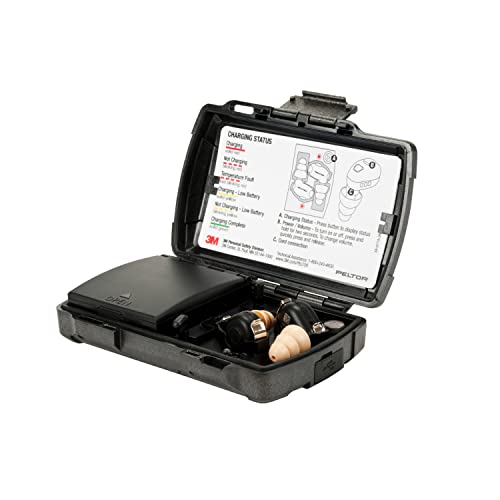 | Peltor TEP-100 Tactical Digital Earplug | Earplugs | 23 dB | $$$ | 4.8 (Our Peltor TEP-100 review) |
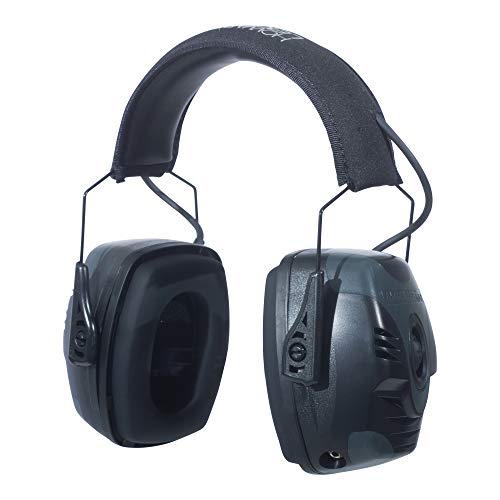 | Howard Leight R-01902 Impact Pro | Earmuffs (electronic) | 30 dB | $$$ | 4.9 |
 | 3M Peltor Soundtrap 6S | Earmuffs (electronic) | 19 dB | $$$ | 4.3 |
 | Surefire Sonic Defender EP7 | Earplugs | 28 dB | $$ | 4.6 |
 | Howard Leight Impact Sport OD | Earmuffs (electronic) | 22 dB | $$$ | 4.6 |
 | Westone DefendEar Digital Shooter Earplugs | Earplugs | 30 dB | $$$ | 4.7 |
 | Howard Leight Leightning L0F | Earmuffs (passive) | 23 dB | $$ | 4.4 |
 | Champion Earmuffs | Earmuffs (electronic) | 25 dB | $$ | 4.4 |
 | 3M Peltor X-Series | Earmuffs (passive) | 31 dB | $$ | 4.6 |
Best Shooting Ear Protection – The Two Options
There are two main ways of reducing the ill effects of a gun’s big bang. Earplugs and earmuffs. (Or, if you want the ultimate in best shooting ear protection, you can always use both at the same time, one over the other.)
Either way, it’s important to find the right fit for you and your ears so that your favorite pastime doesn’t hinder your second most valuable sense. Below is a rundown of the advantages and disadvantages of both, as well as the general types that are available for each kind.
1. Earplugs
Inside or out? That pretty much sums up the difference between the two types of the shooting hearing protection at your disposal. Earplugs? They go on the inside, tucked tightly into the ear canals. And there are generally two types of earplugs to choose from, the disposable kind — often made from foam — and those you can use again and again — typically made from much tougher materials, such as the polymer or silicone.
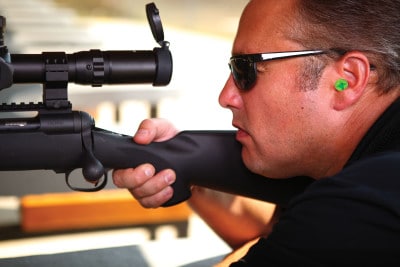
The disposable kind are simple, easy to use and often come in bulk. You just take ‘em, use ‘em and then toss ‘em. The reusable ones, on the other hand, are as complex and as involved as you want them to be. Some are even electronic.
The benefits of using both kinds are as follows…
Earplugs – Key Advantages:
- Easy to carry.
- Can be used in tandem with earmuffs for double protection.
- Doesn’t get in the way when working in smaller spaces.
- Much cooler — temperature-wise — than their counterparts.
Are ear plugs the best ear protection for shooting? Well, if used right, they are very effective and definitely are the cheapest option available (aside from active digital ear plugs, which are more expensive but way more effective at the same time). For more information on the shooting earplugs, read the Best Ear Plugs for Shooting guide.
2. Earmuffs
Earmuffs are considered by many the best ear protection for shooting range. Earmuffs, if you’re not yet familiar with the difference, are the type of hearing protection that goes over the ears. They’re often connected with a band — sometimes cushioned, sometimes not — that runs over the top of the head.
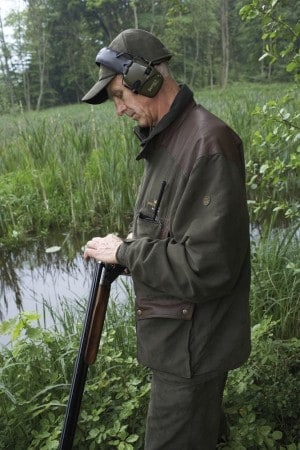
There are two main types of earmuffs, electronic and passive. (Or, more simply, electronic and non-electronic.) Depending on the type, they either block out all noise at all times or only when loud sounds are detected.
The benefits of using both kinds are as follows…
Earmuffs – Key Advantages:
- One size fits most.
- Less variability between users.
- Easy to locate. Easy to find.
- Less maintenance and upkeep.
For more information on earmuffs and why they’re considered the best hearing protection for shooting, please read our ultimate guide on the Best Ear Muffs for Shooting.
Why Hearing Protection is Important
140dB. That’s how loud something needs to be in order to produce substantial hearing loss. It also happens to be the low-end decibel mark for most firearms.
A small, .22-calibre rifle emits a blast at around the same range — 140dB. Other, more power firearms can discharge at over 175dB. Not to mention there are rifles, shotguns and pistols on the market with muzzle brakes and other blast-magnifying modifications. Echoes and reverberations can also intensify the effect, producing more damage than usual.
Studies have shown that only about 50% of gun users use hearing protection while practicing at a gun range. That number drops quite significantly when you’re talking about hunters out on the prowl. What with the types of noise-canceling and comfort technologies available today, in both earmuffs and earplugs, it’s a wonder why hunters and enthusiasts don’t use them as frequently as they should, especially since simple discomfort and the inability to hear and track game are no longer considered viable excuses.
Maybe, to them, it just doesn’t feel American. But, then again, the U.S. Military – the best in the world – utilizes the same kind of the best hearing protection, both electronic and non-electronic, for use during live combat and firing drills.
Either way, if you’re a gun user and you don’t use the best ear protection for shooting, you’re likely to lose an important portion of a very valuable sense. But, in the least, I guess you won’t have to hear anyone expressing their first amendment rights telling you any differently.
Disclosure: Some of the links in this post are affiliate links. As an Amazon Associate, we earn from qualifying purchases. If you click on the link and purchase the item, we may receive an affiliate commission, at no extra cost to you. Learn more
Last update on 2024-07-25 / Affiliate links / Images from Amazon Product Advertising API


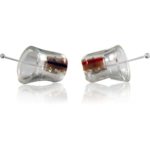
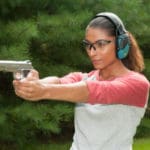

































Add Comment